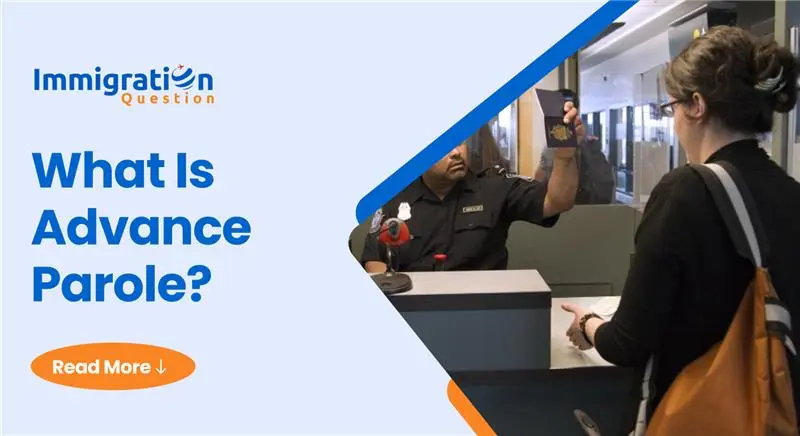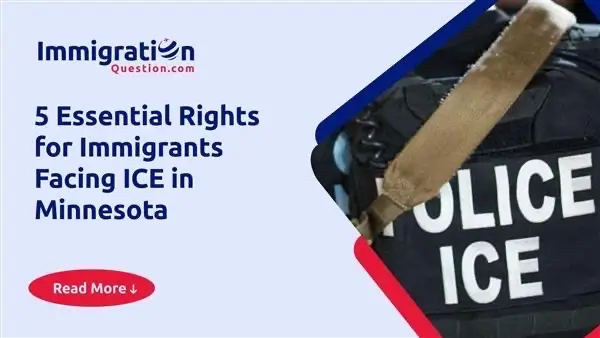If you’re dealing with U.S. immigration, you might have encountered the term Advance Parole and wondered, “What exactly is this?” You’re not alone! Many immigrants have this immigration question and seek guidance from an
immigration question attorney to navigate the process confidently.
In this guide, we’ll break it down in simple terms—what Advance Parole is, who needs it, how to apply, and why it’s essential for certain immigrants. Whether applying for a green card, renewing DACA, or managing humanitarian concerns, understanding Advance Parole is crucial for protecting your immigration status and planning international travel wisely.
What Is Advance Parole?
Advance Parole is a special travel document issued by U.S. Citizenship and Immigration Services (USCIS) that allows certain non-citizens to exit and return to the U.S. without subjecting themselves to deportation proceedings or jeopardizing their pending immigration status.
It is an official authorization to re-enter the country. Suppose you leave the U.S. while specific applications are being processed (e.g., Adjustment of Status) and do not have Advance Parole. In that case, the application can be considered abandoned, and you may lose all your progress toward lawful permanent residency or other benefits.
Who Needs Advance Parole?
- A Green Card Applicant with a Pending Adjustment of Status (Form I-485):
If you are in the United States filing for a green card through Adjustment of Status, you may not leave the country without risking severe delay in your application unless you have an Advance Parole. - A Refugee or Asylee in Pursuit of Re-entry:
Advance Parole is very important if you are in the United States under refugee or asylum status and wish to travel for any personal or humanitarian reason. - A DACA (Deferred Action for Childhood Arrivals) Recipient:
DACA recipients do not automatically receive travel permission. Advance Parole is required to leave and legally return to the country. - A TPS (Temporary Protected Status) Holder:
If you’re protected by TPS, traveling without Advance Parole can negatively affect your status and future applications. - A Person Within the U.S. on Humanitarian Parole:
If you’ve entered the U.S. for humanitarian parole purposes, you need explicit permission to travel again.
Without Advance Parole, you could face serious restrictions on international travel. This is why many people consult an immigration attorney before booking airline tickets.
Why Is Advance Parole Important?
- Prevents Green Card Delays or Denials: If you leave the United States with your green card application pending (Form I-485), USCIS may consider your case abandoned—thus resulting in denial. Advance Parole allows you to leave temporarily without canceling your adjustment of status application.
- Allows Legal Re-entry: Having an Advance Parole doesn’t guarantee re-entry, but it provides strong legal grounds to return to the U.S. without risking your pending status.
- Protects Work Authorization: Many green card applicants receive Employment Authorization Documents (EAD). Advance Parole may be issued as a combo card with your EAD, preserving your right to work and travel.
- Permits Emergency Travel: Advance Parole allows you to respond to urgent medical or family emergencies without jeopardizing your immigration process.
How to File an Advance Parole Application
- Fill Out Form I-131: This is the Application for Travel Document, the key form for Advance Parole. Submit it online or by mail, depending on your eligibility.
- Prepare Supporting Documents: Include:
- Copy of Form I-485 Notice of Action (receipt of pending green card application)
- Documentation for TPS or DACA (if applicable)
- Government-issued photo ID (passport or state ID)
- Two passport-sized photos
- Letter explaining your travel reason (especially for emergencies)
- Pay Any Fees: Most applicants filing Form I-131 with Form I-485 do not need to pay a fee. Others may need to pay based on their situation.
- Submit to USCIS: Submit online via the USCIS portal or mail to the appropriate office. You’ll receive a tracking number and receipt notice after submission.
Processing Times and Expedited Requests
- Medical Emergencies: Immediate family members needing urgent care or procedures.
- Humanitarian Reasons: Situations affecting vulnerable groups.
- Employment Needs: Travel for work-related events like conferences or meetings.
- Educational Purposes: Participation in fieldwork, research, or study abroad programs.
If you need Advance Parole quickly, you can try for an emergency appointment at a local USCIS office. Just be ready with good documents; an immigration lawyer can help you make a solid request.
Traveling with Advance Parole – What You Should Know
- Re-entry Isn’t Guaranteed: Even with Advance Parole, Customs and Border Protection (CBP) agents have the final say on whether you can return to the U.S.
- Avoid Long Trips: Staying away for a long time can create problems for your green card application or raise red flags for USCIS.
- Keep Your Documents Accessible: When you’re on the go, have your passport, photo ID, Advance Parole papers, and USCIS receipt notices with you.
Inform Your Immigration Lawyer (if applicable): Before you travel, inform your immigration lawyer so they can give you advice based on your situation.
Risks of Traveling Without Advance Parole
- Green Card Denial: If you’re applying for Adjustment of Status, leaving without Advance Parole could mean your application gets denied for abandonment.
- Ban on Re-entry: If you’ve spent time in the U.S. without legal status, leaving can lead to a 3-year or 10-year ban on returning if you’ve overstayed your visa.
- Losing Status: If DACA or TPS recipients travel without permission from USCIS, they might lose their protection.
DACA Recipients and Advance Parole
- Humanitarian Reasons: Includes visiting sick family members, attending a funeral, or getting urgent medical care.
- Educational Purposes: Engaging in study abroad programs or academic research also counts.
- Employment-Related Travel: Going to job-related conferences, training sessions, or international assignments is allowed too.
When requesting a DACA Advance Parole, you must provide a clear explanation and any necessary documents. It’s a good idea to have an immigration lawyer help ensure your application meets the necessary standards.
How Immigration Question Lawyers Can Help
- Application Review: Check that your Form I-131 and all related documents are correct and complete.
- Fast Requests: Help you with last-minute travel authorizations or appointments.
- Risk Assessment: Offer advice based on your immigration history and current status about whether or not it’s okay for you to travel.
- Legal Representation: An attorney can advocate for you if problems arise with USCIS or at the border.
Final Thoughts
Advance Parole is more than just a travel pass; it’s a way for immigrants to navigate the U.S. immigration system more safely. It helps protect your status while allowing you to take care of urgent personal, educational, or work-related matters abroad—whether you’re here for humanitarian reasons or are under DACA or TPS. Start your application for advance parole as soon as you need it. Having an experienced immigration question lawyer can help you avoid mistakes or delays.
Check out immigrationquestion.com for legal guidance on your Advance Parole application and other immigration matters. They provide resources to help lawyers handle cases smoothly.
Frequently Asked Questions
1. Can I travel outside the U.S. while my green card application is pending?
Yes, but you need advance parole. If you leave without it, USCIS might deny your application to adjust your status.
2. How long does it take to process Advance Parole?
It usually takes three to five months, but it can be quicker for urgent travel for work, humanitarian reasons, or medical needs.
3. Does Advance Parole guarantee re-entry to the U.S.?
No, it allows you to request re-entry, but Customs and Border Protection (CBP) officials make the final decision at the border.











